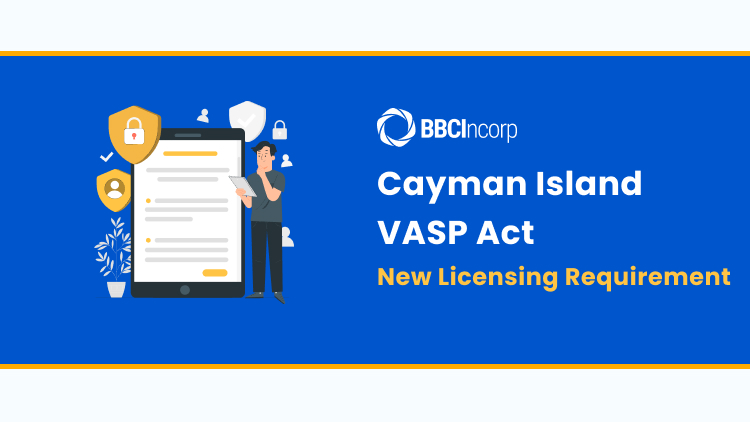
Table of Contents
Background and evolution of the VASP regulatory framework
The Virtual Asset Service Providers (VASP) Act, introduced in 2020, established a clear regulatory framework for virtual asset businesses in the Cayman Islands. This legislation aligns with the recommendations of the Financial Action Task Force (FATF) and has been rolled out in phases.
Phase One: Registration and compliance
Phase One began on October 31, 2020, focusing on anti-money laundering (AML) and countering the financing of terrorism (CFT). During this phase, all persons conducting or intending to conduct the virtual asset services in or from within the Cayman Islands were required to register with the Cayman Islands Monetary Authority (CIMA).
On January 31, 2021, enforcement provisions came into effect, giving CIMA the authority to issue penalties and other enforcement measures for non-compliance.
Phase Two: Licensing requirements
Phase Two is now in effect under the Virtual Asset (Service Providers) Act, 2020 (Commencement Order), 2025 and the Virtual Asset (Service Providers) (Amendment) Act, 2024 (Commencement Order), 2025. This phase requires all VASPs providing virtual asset custody and virtual asset trading platform services in or from the Cayman Islands to obtain a formal license from CIMA.
This shift represents a major advancement in regulatory oversight, transitioning from the registration-only approach of Phase One to a robust licensing regime aimed at ensuring greater compliance and accountability in the virtual asset sector.
What is a virtual asset service provider (VASP)?
Before diving into Phase Two licensing requirements, it’s important to first understand what VASPs and virtual asset services are within the regulatory framework.
A Virtual Asset Service Provider (VASP) is defined as:
- a company, partnership, and other entities incorporated or registered in the Cayman Islands that provide virtual asset services as a business in or from within the Cayman Islands; and
- being registered or licensed under the VASP Act or is an existing licensee that is granted a waiver by the Authority.
Virtual asset services as defined under the VASP Law means the issuance of virtual assets or the business of providing one or more of the following services or operations for or on behalf of a natural or legal person or legal arrangement:
- exchange between virtual assets and fiat currencies;
- exchange between one or more other forms of convertible virtual assets;
- transfer of virtual assets;
- virtual asset custody service; or
participation in, and provision of, financial services related to a virtual asset issuance or the sale of a virtual asset.
This includes issuers of virtual assets, virtual asset custodians, virtual asset trading platforms as well as entities providing financial services related to the sale of a virtual asset such as virtual asset dealers.
If your business performs any of these activities, it likely falls under the VASP Act and must comply with its regulatory requirements.
New licensing requirements under phase two
Obtain a license with CIMA
- Entities providing virtual asset custody services or operating a virtual asset trading platform must obtain a license with CIMA. This includes submitting detailed written explanations of their business model, operational structure, and risk management practices.
- Entities offering virtual asset services that do not require a licence must continue to register as a VASP, as previously required.
- Entities performing both the activities that require a registration and a license under the VASP Act will only require a license.
General requirements
- Compliance with Section 9 of the VASP Act, as amended by Virtual Asset (Service Providers) (Amendment) Act, 2024, including AML/CTF measures and fit-and-proper requirements. Specifically, all VASPs (whether registered or licensed) must now have at least three directors, including at least one independent director with no vested interest in the VASP.
- Additional requirements apply to entities offering virtual asset custody services or operating trading platforms.
Deadlines for licensing
- For existing registered VASPs: Applying for a license within 90 days of April 01, 2025.
- For newly established VASPs: A license is required prior to commencing operations.
- Once a license is issued, existing registrations will be canceled.
Phase Two of the VASP Act is a significant milestone in strengthening the integrity of virtual asset markets. By implementing a structured licensing regime, the Cayman Islands reinforces its position as a leader in financial innovation while maintaining high standards of regulatory compliance.
If you are a Virtual Asset Service Provider currently operating or planning to launch operations in the Cayman Islands, compliance with these new requirements is vital.
Begin by reviewing your current business model to ensure alignment with the updated licensing standards. Collaborate with legal and regulatory advisors to navigate the process and take the necessary steps toward full compliance.
Disclaimer: While BBCIncorp strives to make the information on this website as timely and accurate as possible, the information itself is for reference purposes only. You should not substitute the information provided in this article for competent legal advice. Feel free to contact BBCIncorp’s customer services for advice on your specific cases.
Industry News & Insights
Get helpful tips and info from our newsletter!
Stay in the know and be empowered with our strategic how-tos, resources, and guidelines.





